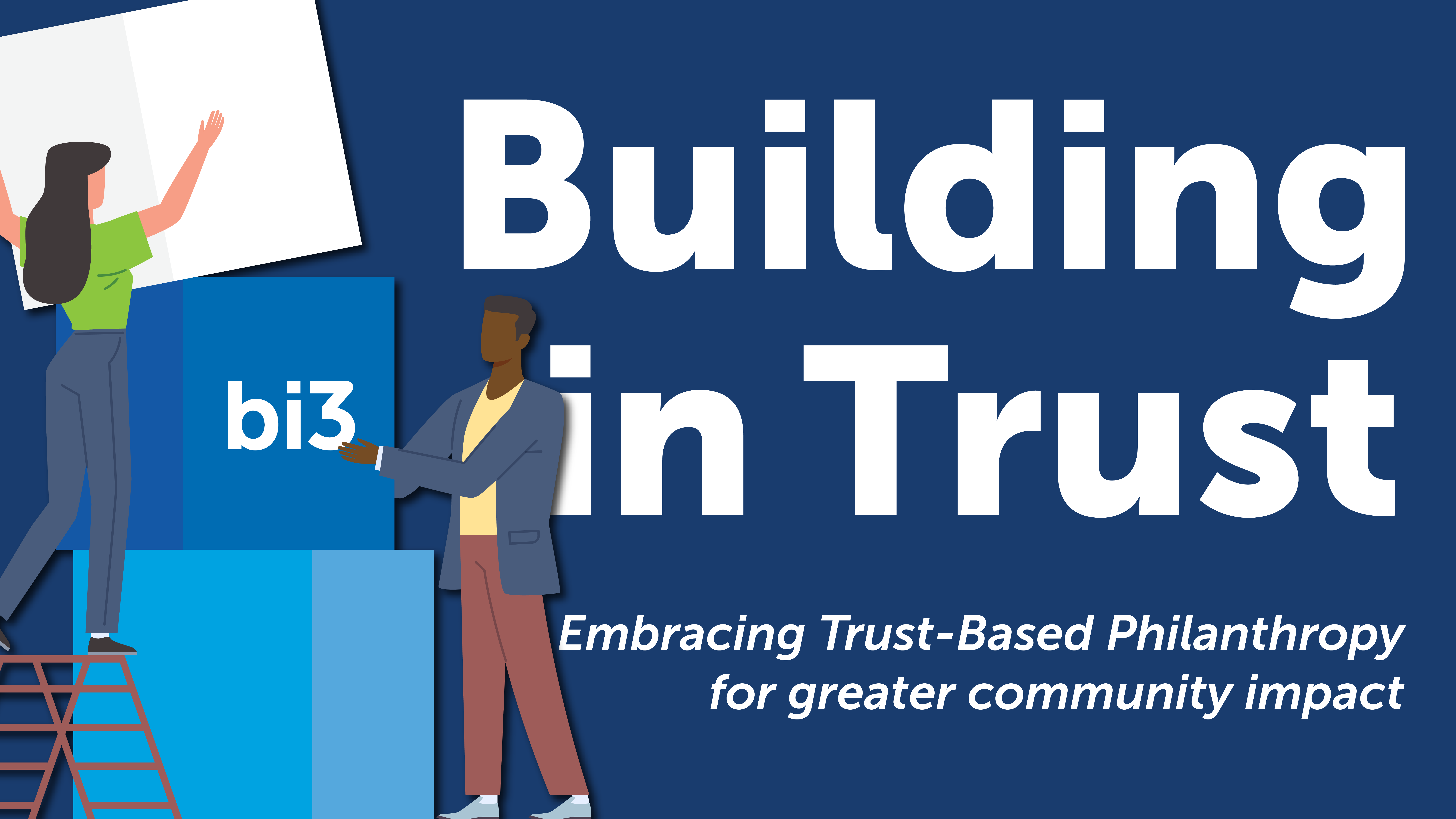
“Philanthropy’s true power lies not just in the dollars it provides, but in its ability to influence systems, elevate voices, and shift public narratives. This is a moment for courage and commitment.
Let’s lean in—together.”
— Human Services Chamber of Hamilton County
A few weeks ago, we shared with you how bi3 is taking action to lean in and support our nonprofit partners in the community. We were overwhelmed by the encouraging responses we received from that message. We remain hard at work growing in trust-based philanthropy, leading by example, and encouraging other funders to move from transactional to relational grantmaking.
Since then, the Human Services Chamber of Hamilton County—a collaboration of more than 90 service organizations—issued its own statement on how funders can best support them during this volatile time.
May 2025:
How Funders Can Support Nonprofits in Uncertain Times
We are living in a time defined by volatility. Nonprofits are often on the front lines, addressing these urgent needs while facing their own internal uncertainties.
Philanthropy has a pivotal role to play—not just in helping organizations survive but in helping them thrive. By embracing trust-based philanthropy, funders can foster a more resilient, equitable social sector. Here’s how:
Funding Strategies:


2. Simplify and Streamline Processes
Speed and accessibility matter. Minimize red tape by simplifying applications and reporting requirements. Consider open or rolling deadlines and ensure rapid disbursement of funds.

3. Increase Grantmaking Budgets
Raise your payout rate above the 5% minimum over the next four years. While philanthropy can’t replace public funding, it can fill vital gaps, stabilize organizations, and fuel innovation during times of strain.

4. Maintain Open, Transparent Communication
Trust is built through transparency. Keep grantees informed about shifts in strategy, timelines, and funding priorities. Create clear lines of communication and be responsive and proactive in your outreach.

5. Think Broadly
Support a diverse range of organizations with a wide variety of missions—from nimble grassroots initiatives to large anchor institutions. An effective nonprofit ecosystem needs both.
Advocacy Actions:

1. Use Your Voice to Advocate for the Sector
Beyond funding, use your influence to elevate the nonprofit sector. Write op-eds, engage policymakers, and create space for nonprofit leaders in public dialogues. Philanthropy can help shape narratives and inform policy.

2. Support Collective Policy Efforts
Join forces with advocacy organizations like the Human Services Chamber and others pushing for systemic reforms. Unified voices can lead to meaningful change, benefiting the entire sector.
Power balance comes when nonprofits dare to ask funders for the type of relationship they seek. We are so grateful to each and every single one of you who is engaging in honest, transparent dialogue with us, with each other, and with the broader community.
Together, we can build a trust-based philanthropic community.


Jill Miller
President & CEO, bi3
IMPACT OF TRUST-BASED PHILANTHROPY IN ACTION
Lighthouse Youth & Family Services
Recently, the Lighthouse team shared with us the value and gratitude of having the time and resources to thoughtfully develop their new clinic model. With an initial $695,000 bi3 grant, the Lighthouse Clinic aimed to expand mental health services for youth by offering in-house psychiatric and medical management.
As a trust-based partner, the bi3 Fund worked with the team to add an additional year and $300,000 in funding to support Lighthouse through the clinic’s development and sustainability planning. This flexible approach enabled a “planful rather than panicked” process, helping Lighthouse determine the right size, scope, and structure to better meet the evolving mental health needs of the communities they serve.



